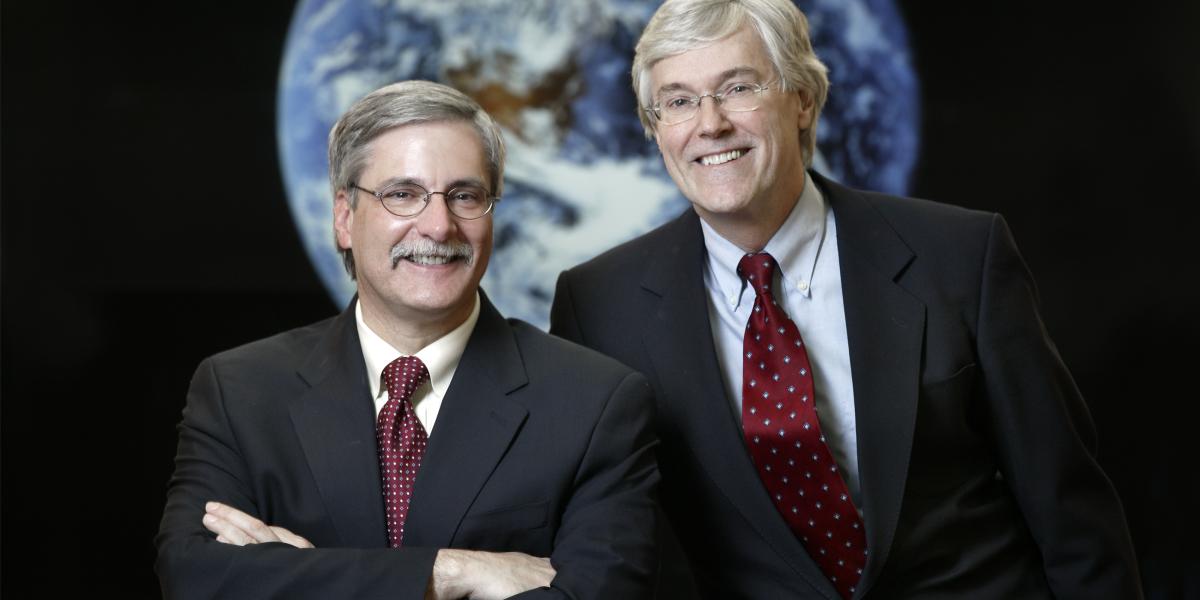Center of the World
The Center for Global Health provides a one-stop shop for Hopkins' international research and education efforts
Johns Hopkins' new Center for Global Health will be a "one-stop shop" for the University's international research and education activities, bringing together an assortment of programs throughout the Bloomberg School, the School of Medicine and School of Nursing.
The Center will secure funding for new initiatives, recruit faculty to address global health issues and train graduate students to assume leadership roles in global health, says Center director Thomas Quinn, professor of International Health, Epidemiology and Molecular Microbiology and Immunology at the Bloomberg School, and professor of Medicine at the School of Medicine.
University officials say the unusual partnership promotes collaboration among the three schools and uniquely positions Hopkins in the arena of international health. The Center will coordinate and focus the University's efforts against HIV/AIDS, malaria, tuberculosis, hepatitis, flu and other worldwide health threats, especially in developing countries.
"It will help us attack big causes of mortality in the world," says Michael J. Klag, MD, MPH '87, dean of the Bloomberg School. "It will help us to attack problems of the developing and the developed countries. And it's going to create new synergies to make us more effective in saving lives."
The new Center will bridge the global health research and education programs of the three schools, including the Center for HIV/AIDS, the Center for Human Nutrition, the Dana Center for Preventive Ophthalmology, the Johns Hopkins Malaria Research Institute and the Office of Global Nursing, as well as programs devoted to immunization research, disaster preparedness, neonatal health and other issues.
"I see the Center as a one-stop shop that will support the missions of the three schools overseas," says Quinn, MD, MSc. A top priority is to catalog the faculty's current international research and make the information available in real time, allowing students to pinpoint their interests according to subject and location. The Center will also offer travel research grants for students and faculty to collect pilot data in the field—an "incredible opportunity" for them to get first-hand experience working in developing countries and making a difference to improve health disparities, says Quinn, an HIV/AIDS epidemiologist and a member of the Institute of Medicine of the National Academy of Sciences.
Quinn envisions the Center making use of existing Hopkins facilities across the world to quickly, and with minimum expense, launch new initiatives, such as a global network of avian flu surveillance. "Some people are working right now in areas where avian flu is a problem," he says. "We could collaborate as an institution and do surveillance in those areas. "We also want to provide a real focal point for global health issues," Quinn says. "The Center will be like a think tank and bring in outside experts from the UN, WHO and the Bill & Melinda Gates Foundation."
Adds University President William R. Brody: "The most effective way to strengthen our efforts is to find smart ways to combine and focus them to create teams of physicians, nurses, entomologists, engineers, basic scientists—whoever is needed to attack a problem in a coordinated way. That's what the Center for Global Health will help us do."
Center staff will work with advisory committees to define key global health problems, design scientifically based interventions and identify funding sources. The Center leaders will serve as Johns Hopkins' voice in support of local, national or international policy or political initiatives. "With the Center for Global Health and under the leadership of Tom Quinn, we will rapidly increase our effectiveness in research, teaching, practice and service around the world," says Martha N. Hill, dean of the School of Nursing.
Edward D. Miller, dean of the School of Medicine and CEO of Johns Hopkins Medicine, says that the fusion of the three schools' expertise, leadership and resources will result in a "uniquely Hopkins enterprise" to address international health problems.
"While the challenges are daunting," Miller says, "I have no doubt that this new Center will play a major role in helping improve the health and lives of people throughout the world."
